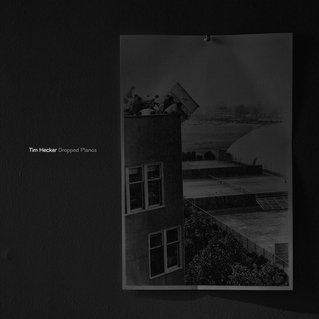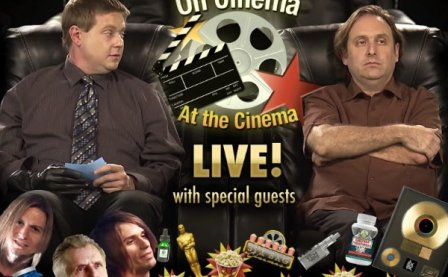Jacques Derrida once wrote that Literature — with a capital “L”: the Work, the Opus — is that which “transforms the field.” He was thinking of Kafka’s The Trial. And his point was that after its publication in 1925, everything was different. Literature, as a field, was otherwise. The rules of the game had changed. Ravedeath 1972, Tim Hecker’s last release, is Literature. It’s Music, with a capital “M.” Sure, it has precursors, a lineage. There are elements of “drone” and “noise” to it, as well as passages that come pretty close to being “ambient.” But it’s at once all of these things and none of them. As Derrida might have put it, Ravedeath 1972 is “irreducible to the laws of genre.”
I’m not the only one who thinks so either. Over at the mnml ssgs blog, PC calls the record “purposefully enigmatic.” With Ravedeath, he argues, Hecker somehow found a way to “suspend time.” “Yeah,” he writes, “it’s that good.” In his formidable review right here on Tiny Mix Tapes, DNC talks about the music inducing a feeling of a “weightlessness.” And Hecker himself has said that he’s aiming for a kind of secular “church music”: the sacred in the profane. I know what they mean. Ravedeath’s throbbing slowness overwhelms you. Is it possible for music to feel both weightless and incredibly profound? Apparently so. Ravedeath comes in waves: at turns totally serene and utterly devastating, its effects feel physiological. Listening to Ravedeath involves a kind of surrendering, a form of active passivity.
In that sense, the invocation of neither Rave nor God is completely incongruous. There may be no beat to speak of, but there’s certainly a pulse. And its effects bore right on in to your center. This is sound as neurobiology, then, vibration as “virology,” as Steve Goodman might have put it. With Ravedeath, Hecker’s inviting you to give in to the anti-rave, to let it go to work on your body and your (godless) soul.
Dropped Pianos is not as good as Ravedeath. It doesn’t have the same sense of importance to it. It’s lighter, less intense: it doesn’t “transform the field.” But that’s very far from saying that it’s not worthy of your attention. It is, and very much so.
The record’s being pitched by both Hecker and his label Kranky as a series of “sketch pieces recorded in 2010 in preparation for [Ravedeath].” As if to say: that was the Work; this is just the work that got him there. None of the tracks are titled, just the word “sketch” and a number. And that’s a shame, I think. Or at least potentially so, because as provisional as these nine recordings may have seemed to Hecker when he made them, they do have something to say in their own right. And it’s a pity that we’re being invited so explicitly to listen to them disinterestedly, as it were — to not expect too much. If you take the record’s title seriously, after all, these are the piano sketches quite literally “dropped” in favor of a church organ on Ravedeath (though these are not the only “dropped pianos” being referenced, it’s true).
Sure, a couple of “sketches” do sound vaguely unfinished, but Dropped Pianos is an absorbing listening if you allow it to be. It may be “minimal,” and if you’ve spent a lot of time with Ravedeath, you may find it hard to resist the urge to hear it as a younger, slightly less fully-developed sibling, but it deserves not to be reduced to ‘mere’ ambience: the soundtrack to your next novel or conversation with friends over a bowl of pasta. Tim Hecker makes slow music for slow listening, and Dropped Pianos is absolutely worth the investment.
More about: Tim Hecker




